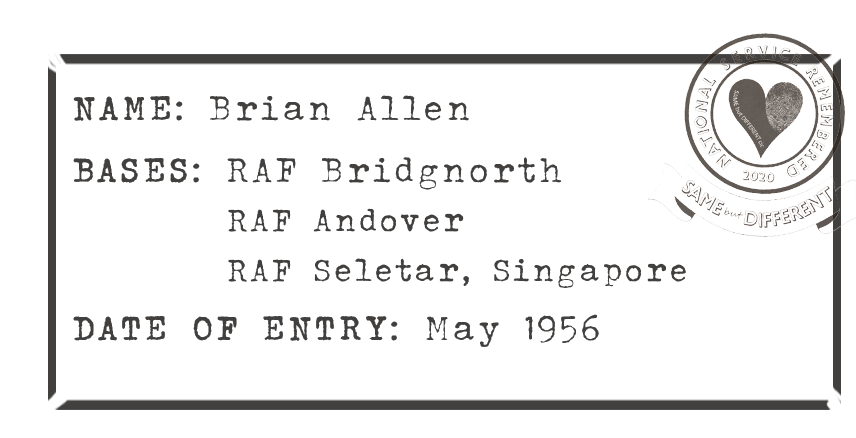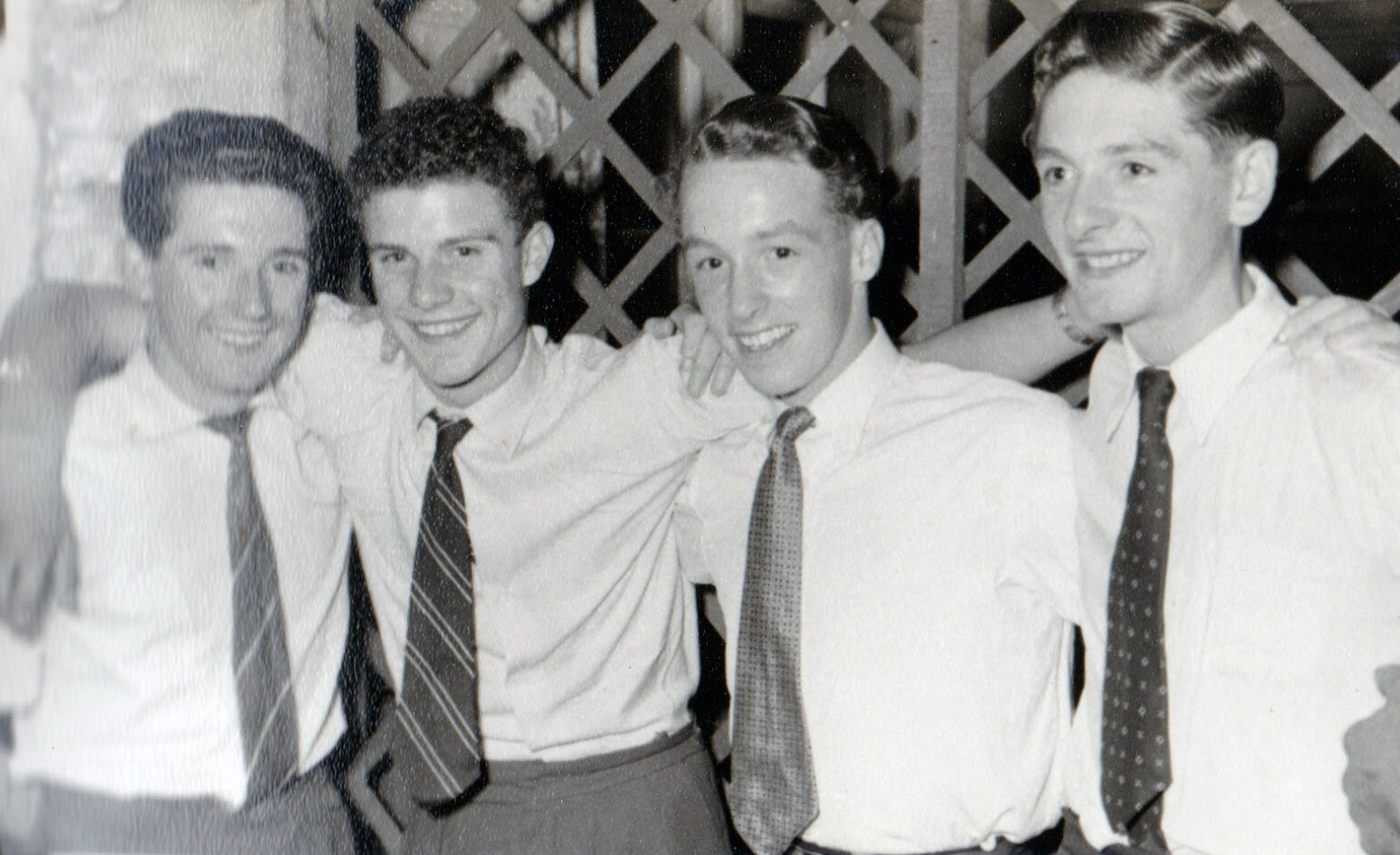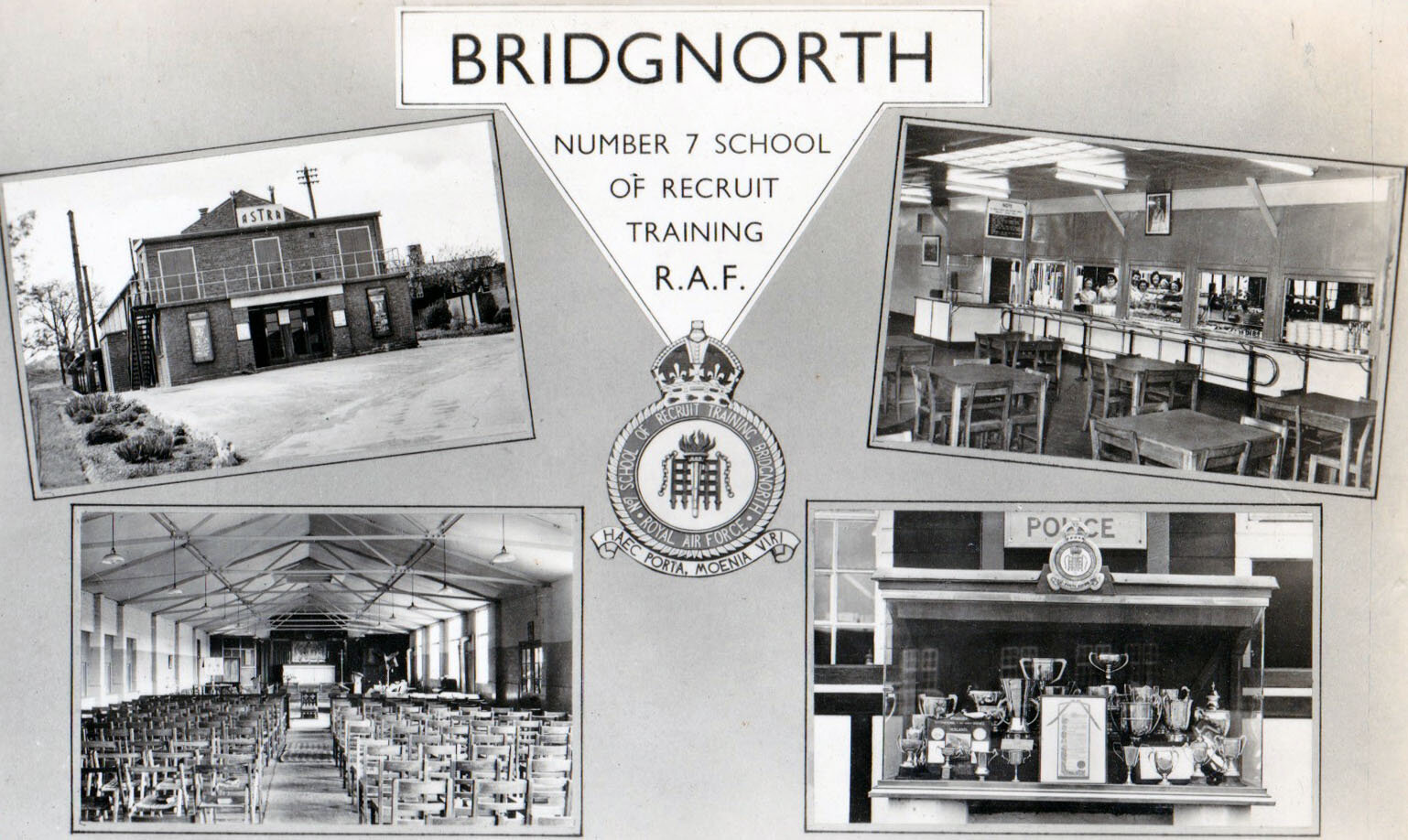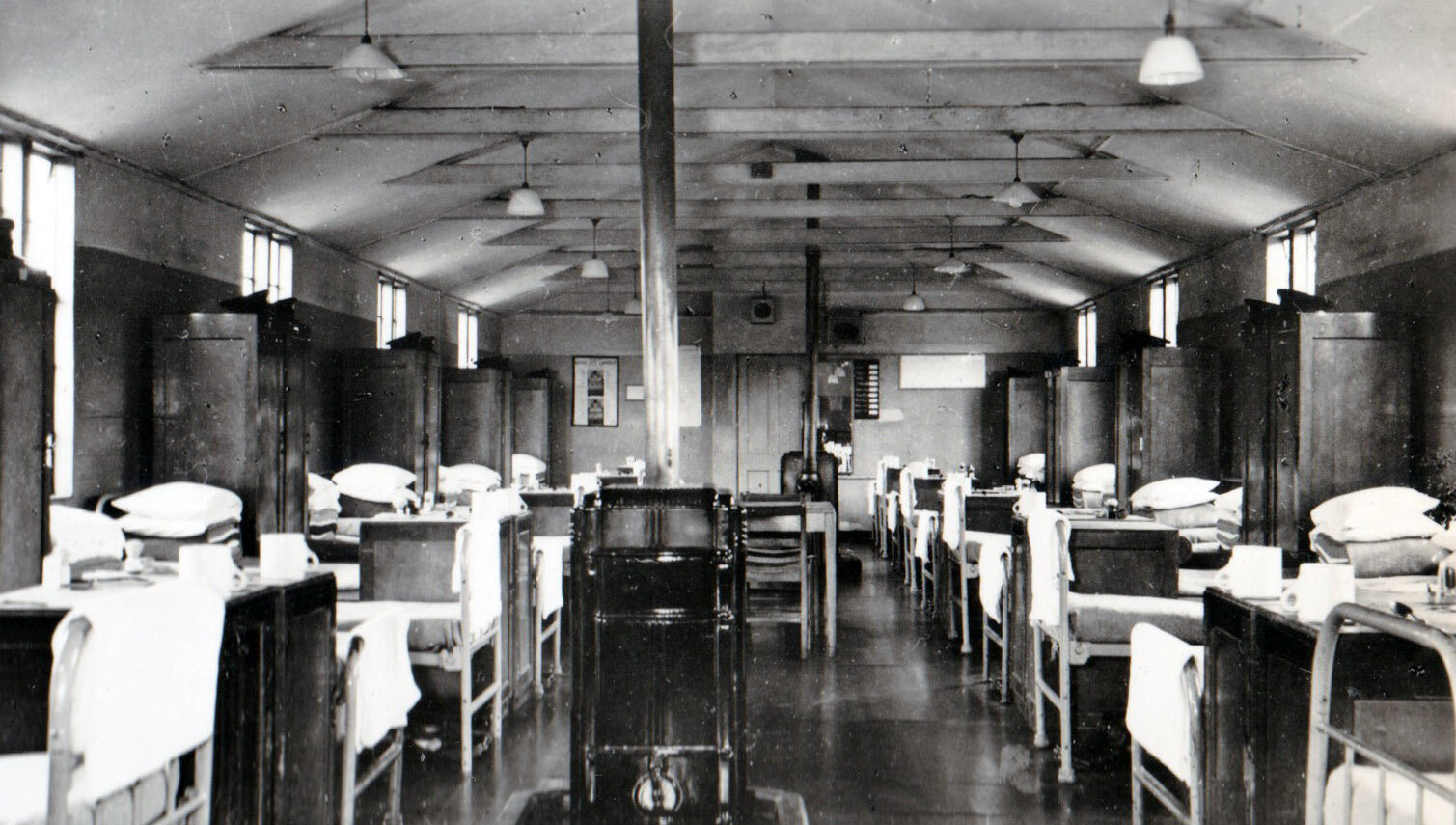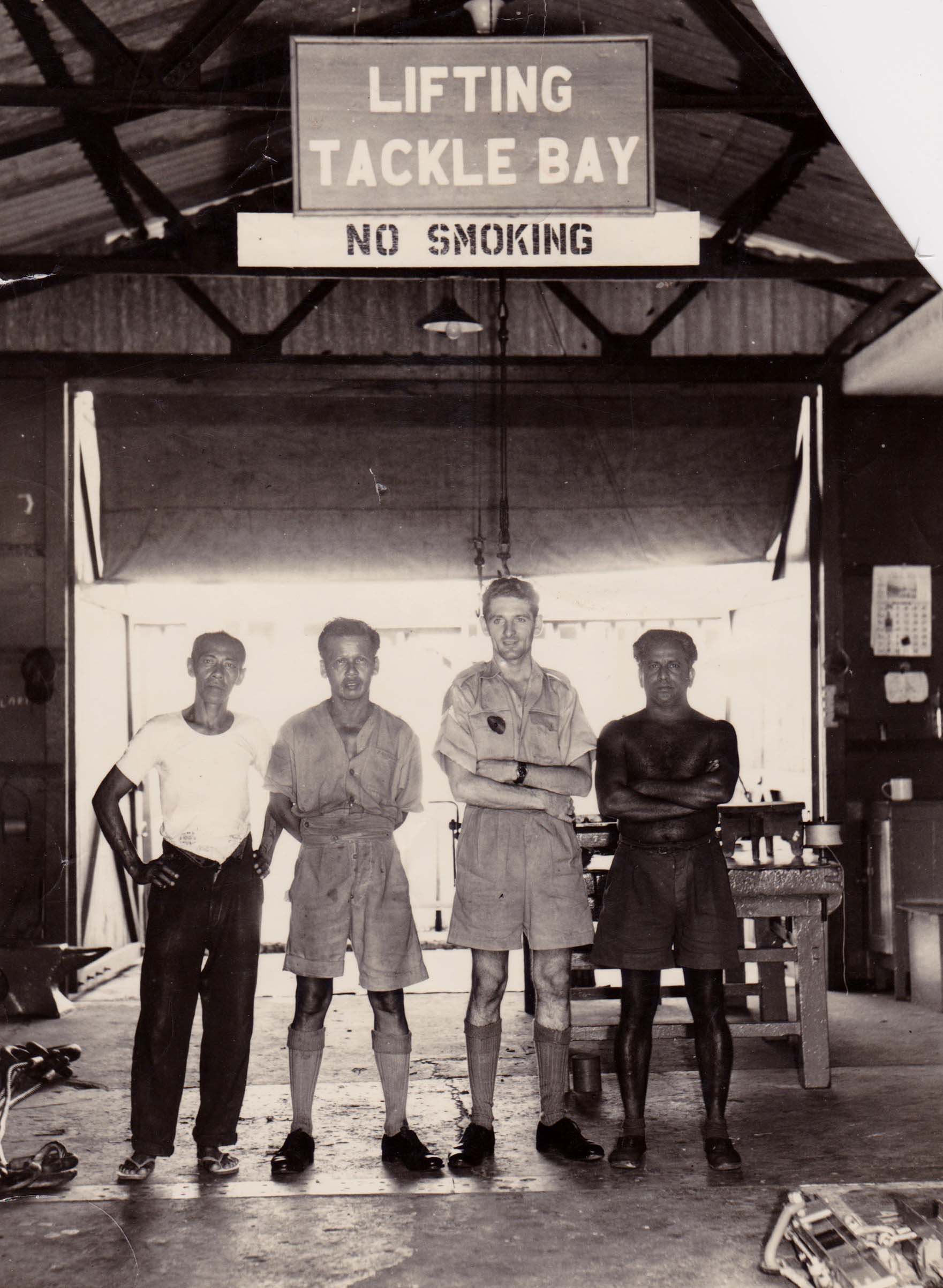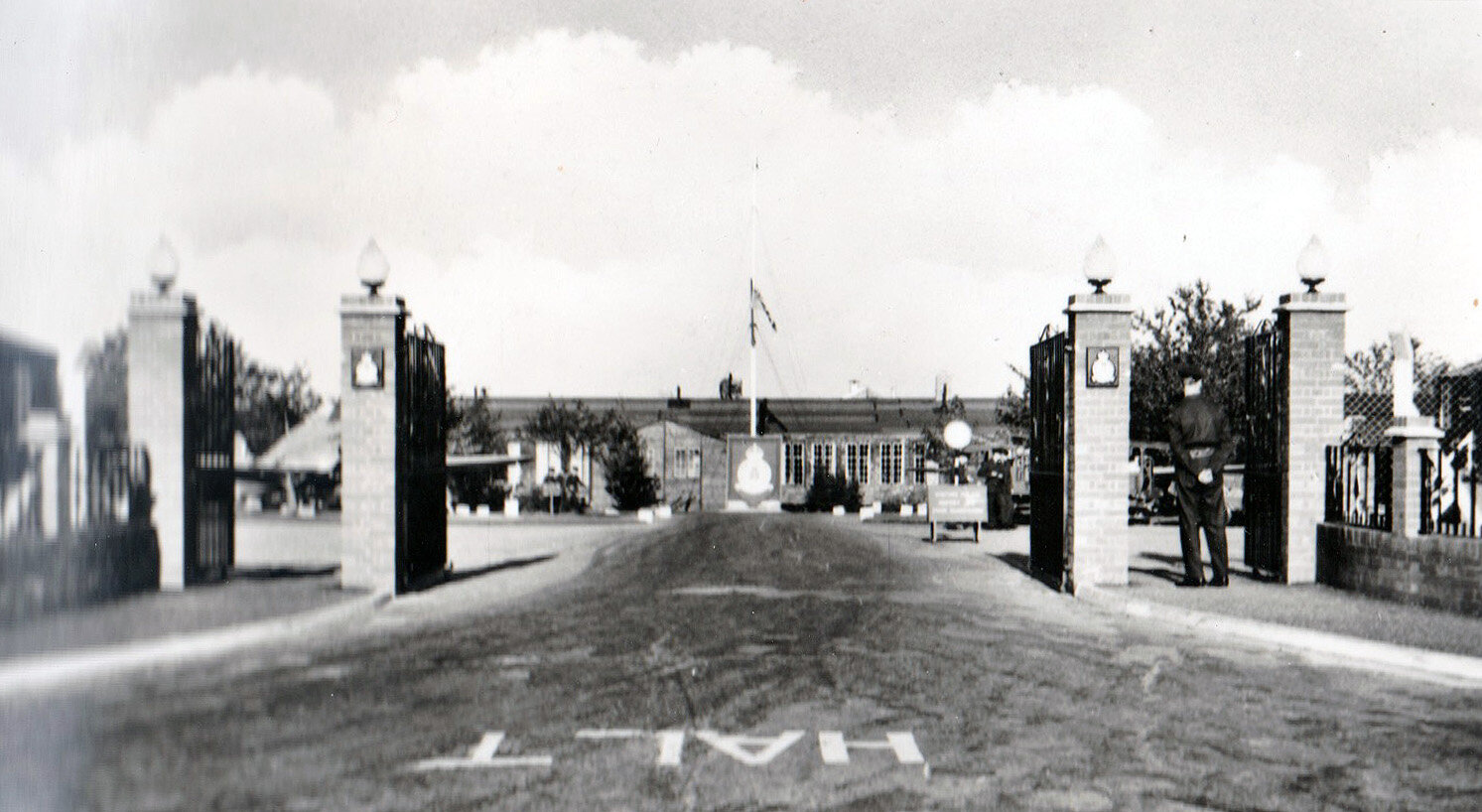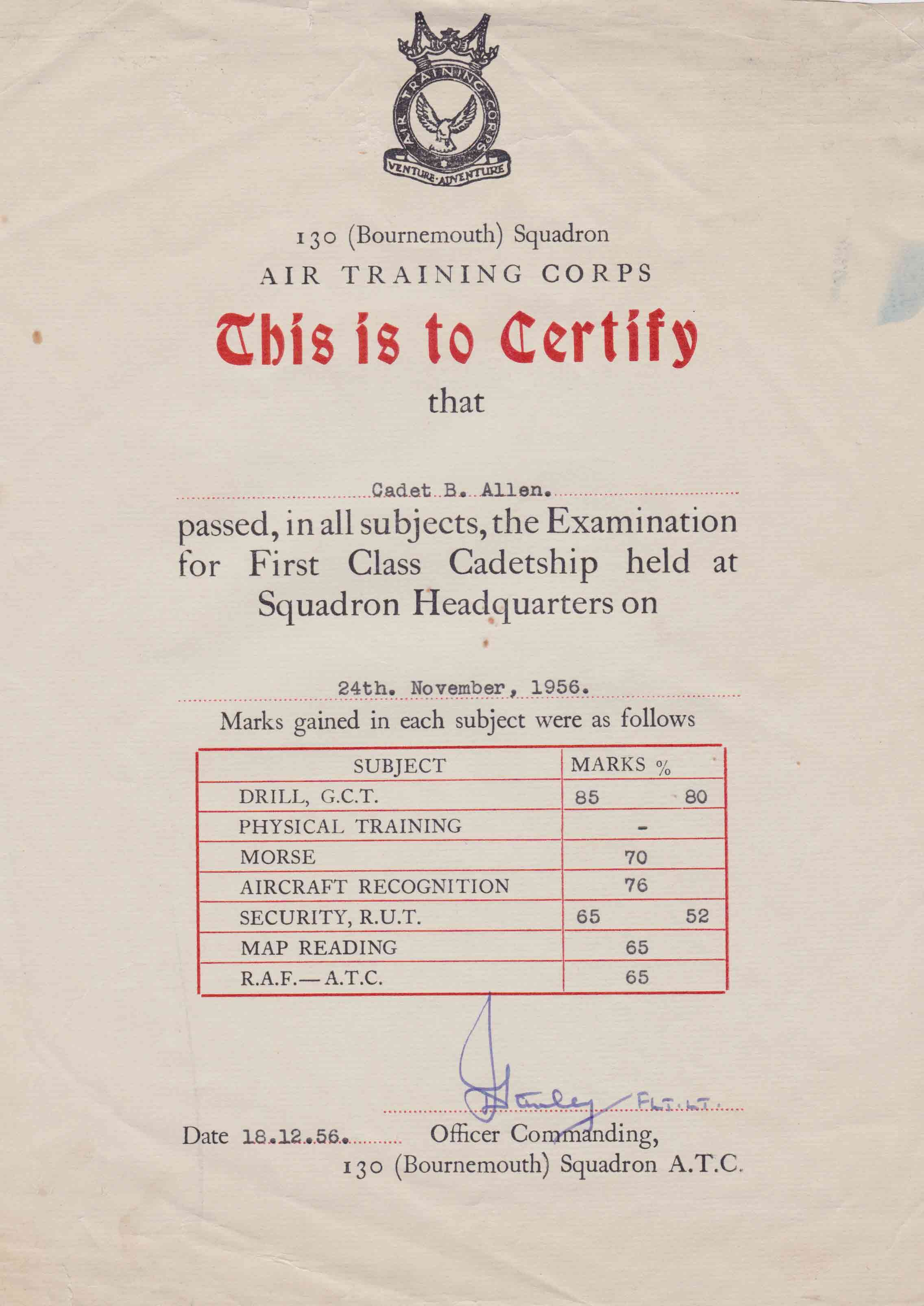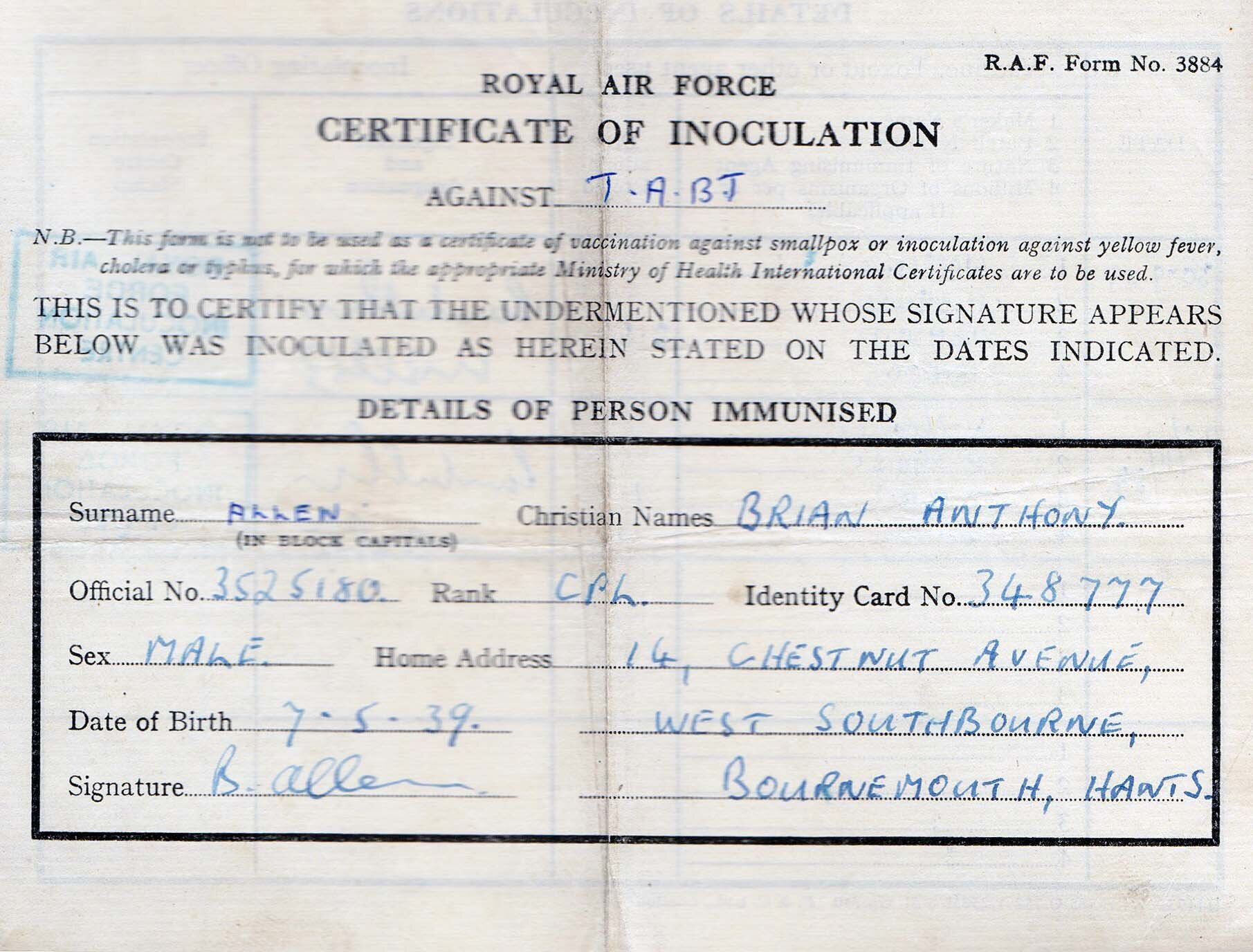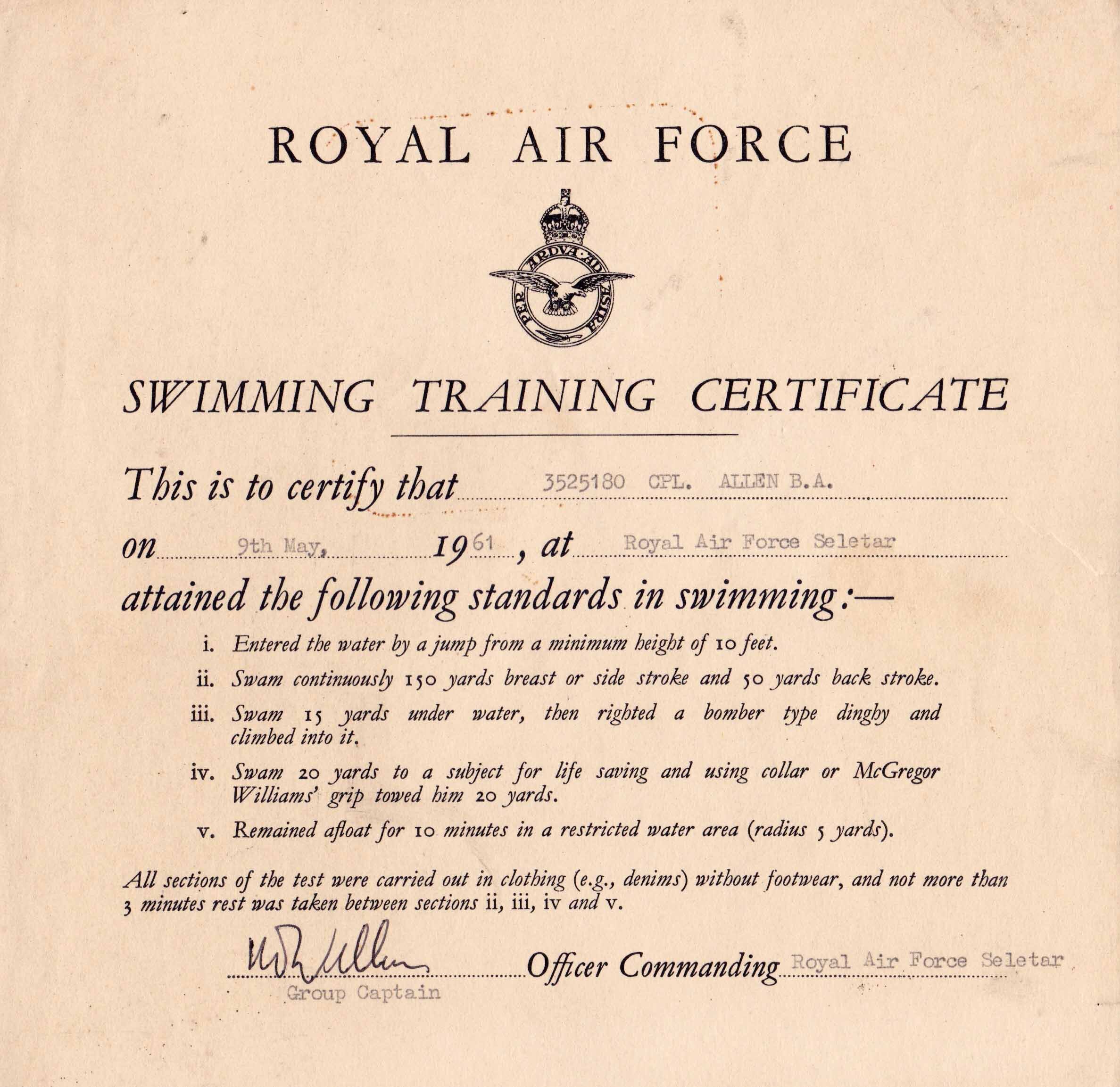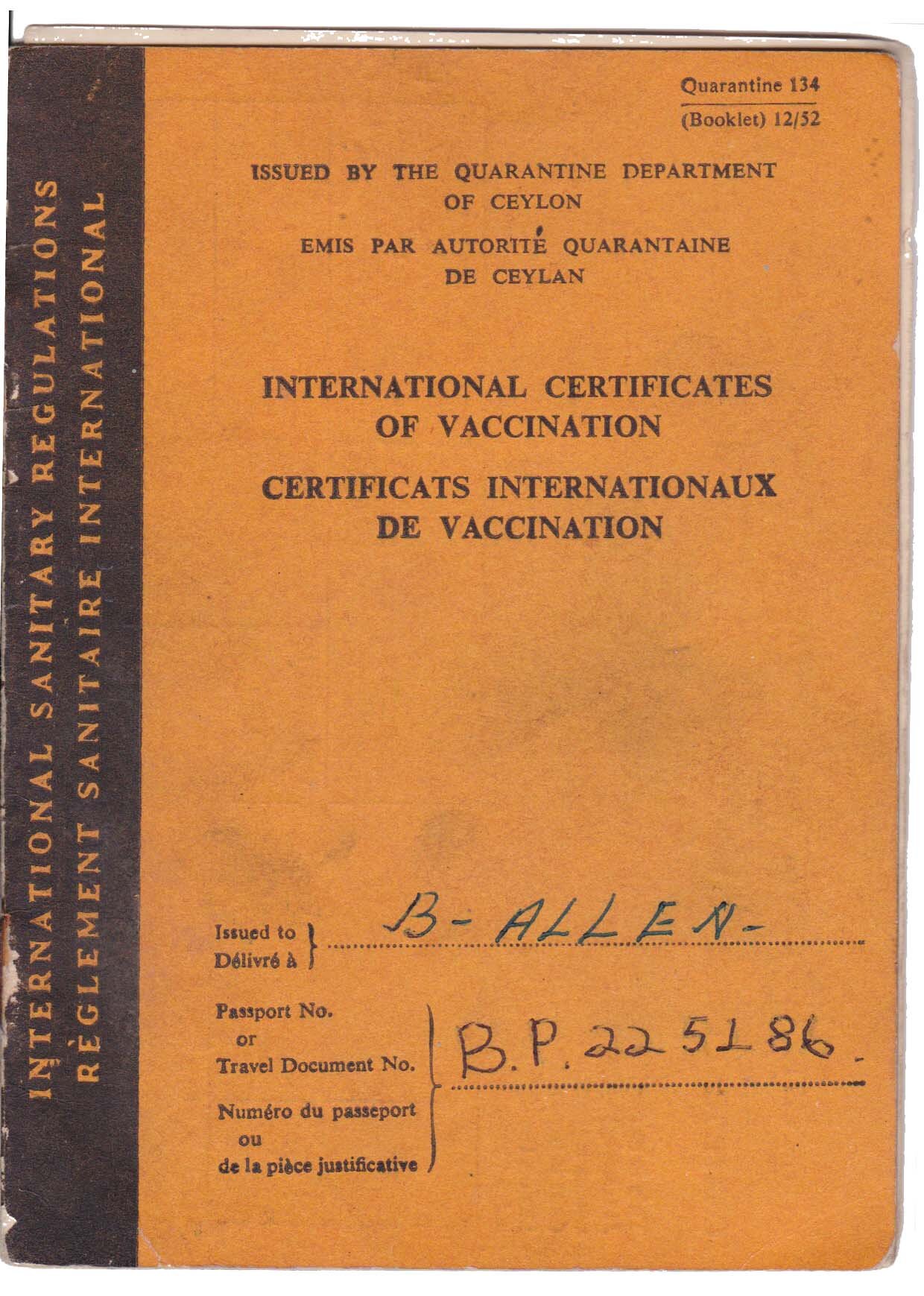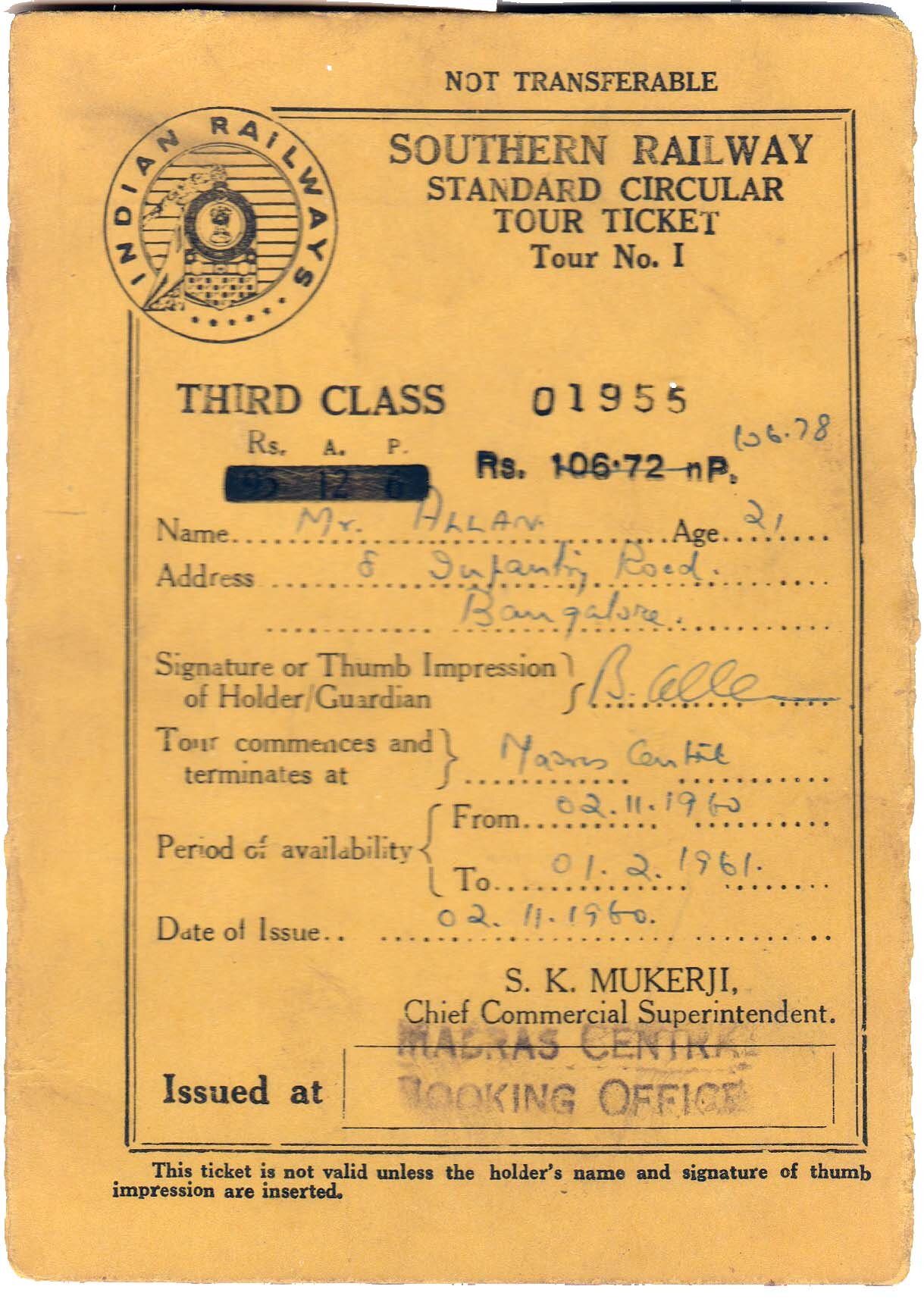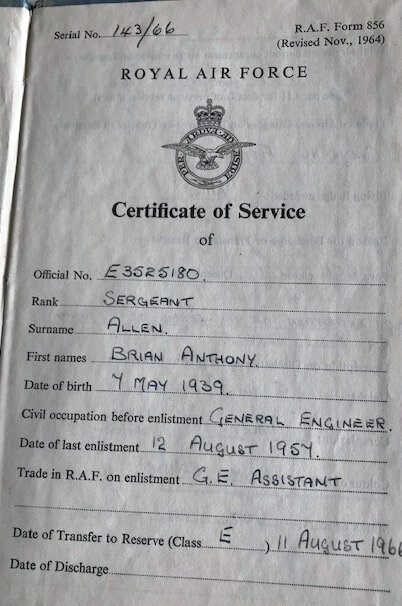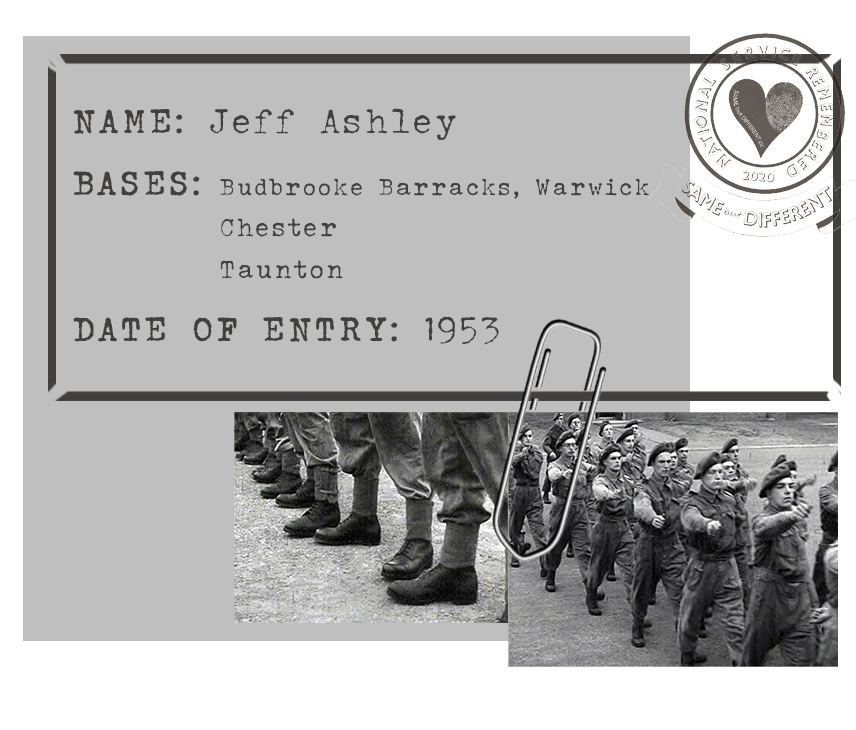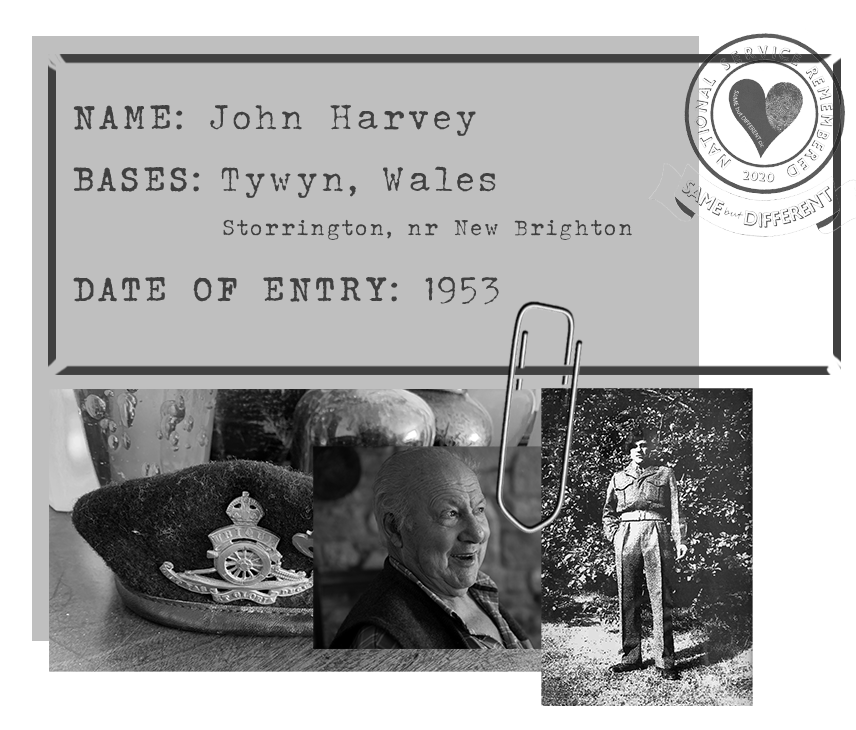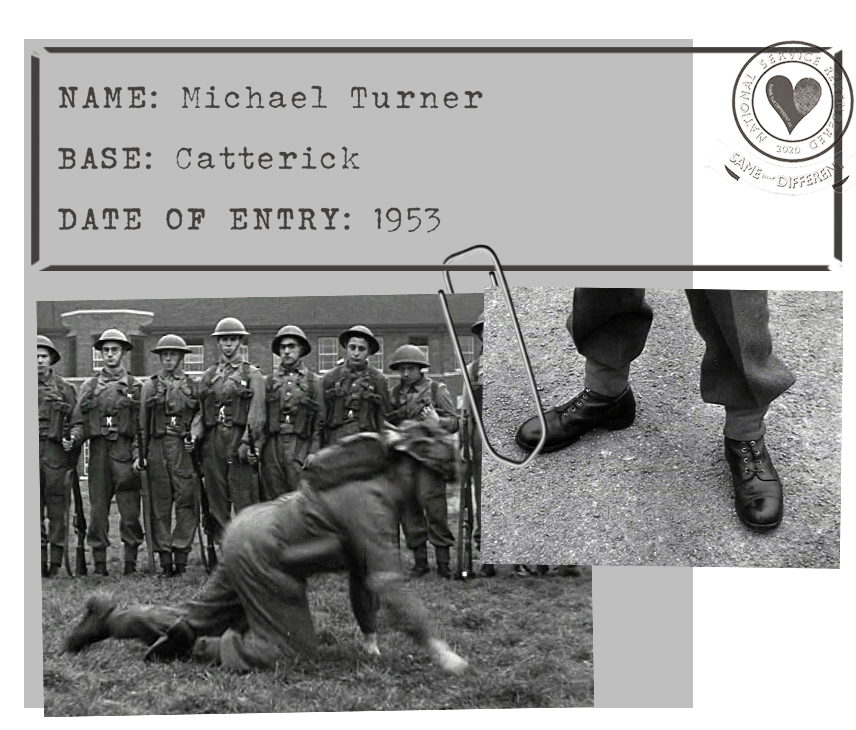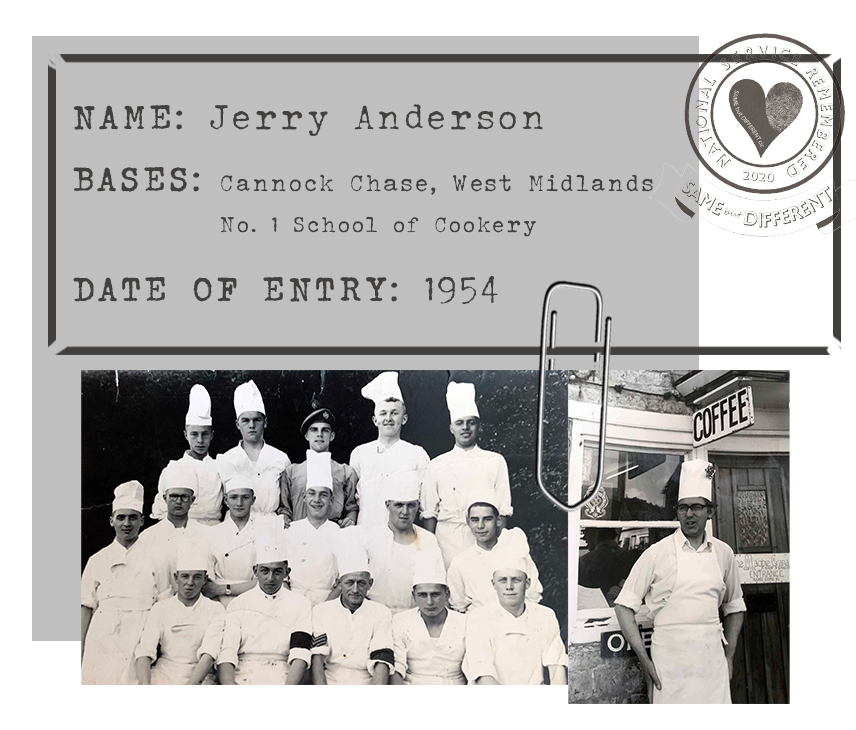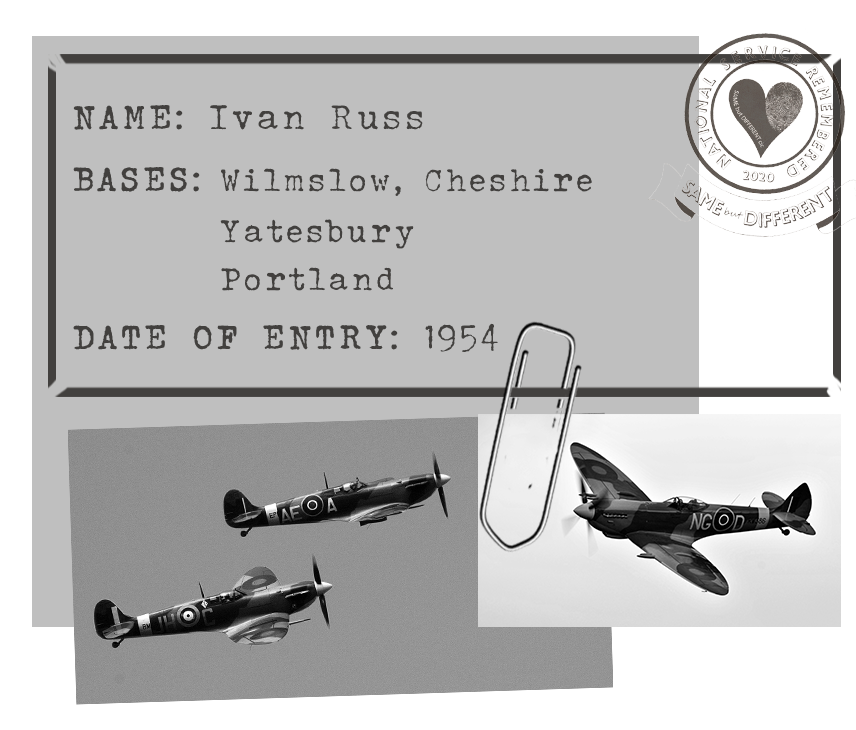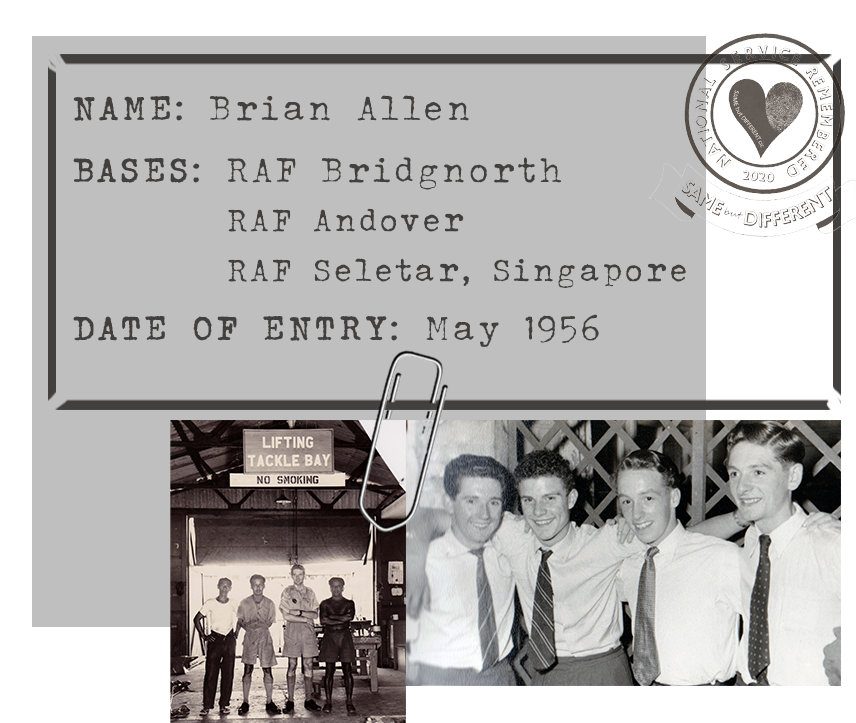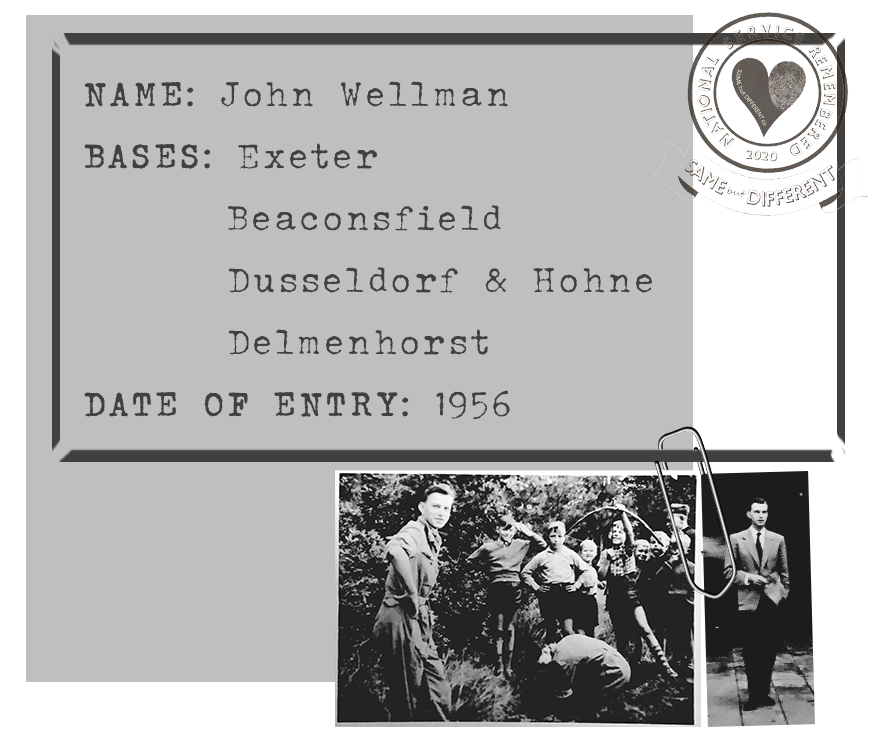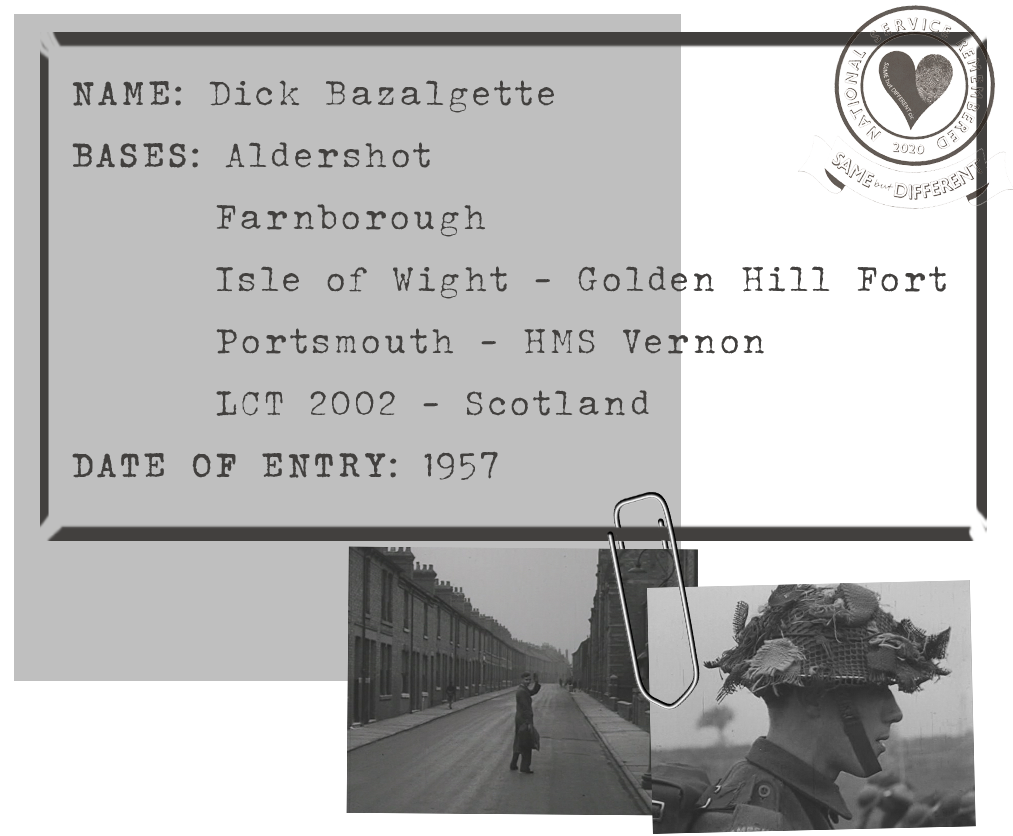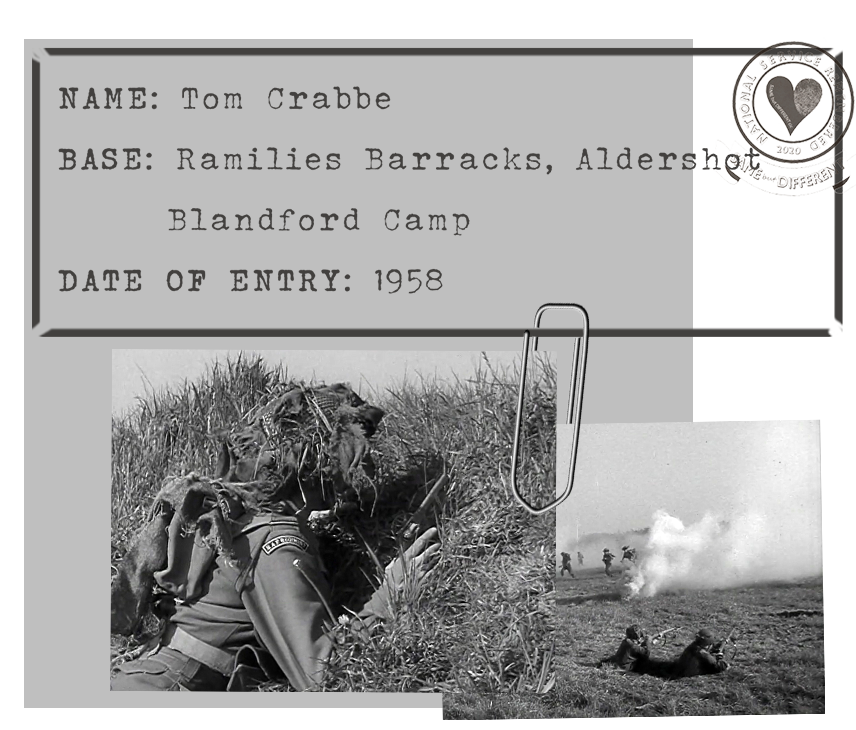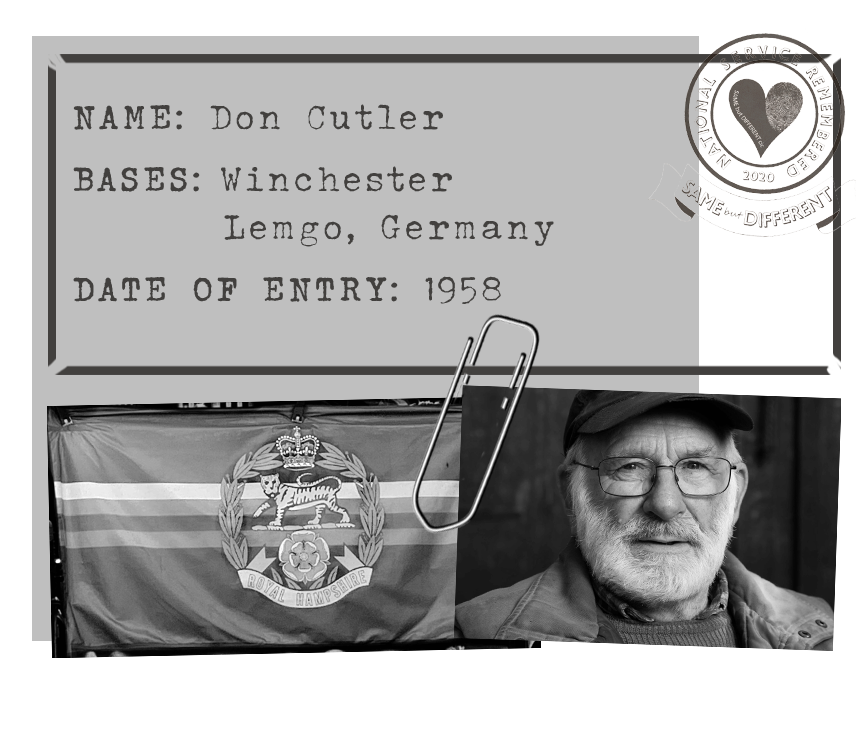I was born in Bethnal Green in 1939, so a true cockney, born within the bells.
The war started at the end of that year and I was evacuated; put on a train with some other older girls, with my name around my neck and a little lunch box, and I went down to Lord Shaftesbury’s home where I stayed during the war. My mother came to see me a couple of times; my father was in the RAF. After the war, my parents moved to Bournemouth where they bought a guest house in Southbourne. I grew up there and went to Ringwood Grammar School.
At 17 in 1956, I was working at British Aerospace in Bristol and living with my grandmother. Previously, I’d gone to London to join the Metropolitan Police as a cadet. I passed all educational exams but they told me that I’d failed the medical. When I asked why, they wouldn’t tell me.
I got my conscription papers and thought, yes, I want to be a Top Gun pilot! So I signed on and took the aptitude test, which was all fine. When I did my medical test, they said ‘there is no way you can be a pilot, you're colour blind’. I never knew at that point why when my mum would ask me to go and fetch her brown handbag and I brought a red one back, I’d get a clip round the ear for being contentious. So, it wasn't until I was 17 that I found out I was colour blind, which excluded electrics, electronics or computing, which was such a shame. So I decided to be a mechanical engineer in the RAF. The pay was terrible but if I signed on, it would be 60% more so I signed on for 9 years and 3 years reserves.
I went to RAF Cardington, where we saw people parachute training by jumping out of hot air balloons and down a rope, before 6 weeks of square bashing at RAF Bridgnorth. If you failed any part of this, you had to redo it. Our Corporal was a terrible man. The eyelets for his laces on his boots were polished brass and his boots were shining, beautifully polished. He used to shout at us ‘if you don't march properly and don't swing your arms properly, you'll get back dated so far, you'll think that the bow and arrow’s a secret weapon’. That always made us laugh. I then went to RAF Andover which was an officer training place where a lot of officers came from India and Africa. I was a junior technician and would wear my chevron upside down to identify this. As a Corporal, I would wear 2 chevrons upside down.
“Our Corporal was a terrible man. The eyelets for his laces on his boots were polished brass and his boots were shining, beautifully polished.”
I remember quite vividly, there were Anson aircrafts at the airfield. The Ansons were refitted with new engines and they would have Polish pilots, usually warrant officers or senior sergeants. One officer called us over, looking for volunteers, so off we flew. It was wonderful, the pilot flew along and then he’d cut out one end, feather each engine one by one to test them. I also went to RAF Wyton near Blackpool for technical training: there was a great big machine that would blast hot air into the cockpit of the jets, which would warm the pilots in winter, and I was responsible for servicing these big furnaces. They were run by paraffin, so we had to be careful they didn't catch fire.
I was then promoted to Corporal and stationed out in Singapore at RAF Seletar - flew out by comet on a 23 hour flight.
I arrived in Singapore on my 21st birthday and so to celebrate, we went off into Singapore city to a few clubs. As it was a Friday, we hadn’t yet registered at the camp. When we eventually registered on the Monday, we learnt that all the places we had been to were out of bounds.
I used to be involved in amateur dramatics and one of the cast was quite popular with our local Padre Reverend. He was an officer and royalty rank because he was a reverend but he also unfortunately liked his drink. Often on a Saturday evening he would go out and have a bit too much and then his car would end up in the monsoon ditch and we would have to pull it out so he could drive to the service on the Sunday. I was there for two and a half years.
One of our servicemen married a local Singaporean girl. They'd been married for a couple of years and had a baby but unfortunately the baby died and so we had to attend the funeral. The baby had a little white coffin, only about 2 foot long. When they lowered the coffin into the ground, it was so awful, the mother kept trying to jump in to be with her child. That was very upsetting.
Another time, one of the servicemen actually got murdered by one of the Triads because he had apparently dishonoured a woman that he had married, again a local Singapore girl. We had to do a full military honours for him, firing over the grave.
I was once on an ammunition train from Singapore up to Kuala Lumpur. They had CTs, communist terrorists, and so we were always wary that we could have been ambushed on this train. We were issued with a 303 rifle and one bullet to put up the spout in case we got ambushed, though one bullet couldn’t save us all.
After Singapore, I became a Sergeant and was stationed at RAF St. Athan in South Wales. We were chosen to be the tug of war team to represent the RAF and go up to Scotland to the Braemar games. The Queen, Prince and Duke of Edinburgh were there. We trained and trained and I was probably the fittest I’d been in my life. We were pitted against this army of Scottish people in kilts and we were sure they cheated by sitting down because their kilts were spread out and you couldn’t see them standing while we were trying to pull them off.
I was honoured to be picked to line the route when the Queen and the Duke of Edinburgh and all the royal family came down thanking us all and I got a nod from the Duke of Edinburgh and the Queen. I was also picked to be on the route for Winston Churchill’s funeral. It was in November so it was terribly cold and the rehearsals for the event were actually 10 times worse than the actual event itself because they went up and down and up and down, and of course the regimental Sergeant Major had a voice which would stretch from here to London. That was quite an experience and something I was very proud of.
“ We were pitted against this army of Scottish people in kilts and we were sure they cheated by sitting down because their kilts were spread out and you couldn’t see them standing while we were trying to pull them off.”
When I left the RAF, I went to work for Max Factor, doing maintenance on the equipment and then I ran my own business for 30 odd years before retiring.
I married my lovely wife Jenny a few years after I had left the RAF and we were married for 46 years. Sadly, she was taken with cancer so I've supported the Salisbury Hospice with different challenges. I've done the zip wire in North Wales and I abseiled down the Spinnaker tower in Portsmouth. I also did a 10-mile midnight walk round Salisbury and a parachute tandem over Salisbury Plain. I’ve raised over £6000 over the last few years.
I’m 82 now so my final challenge will be to walk over hot coals in my bare feet, known as the firewall.


